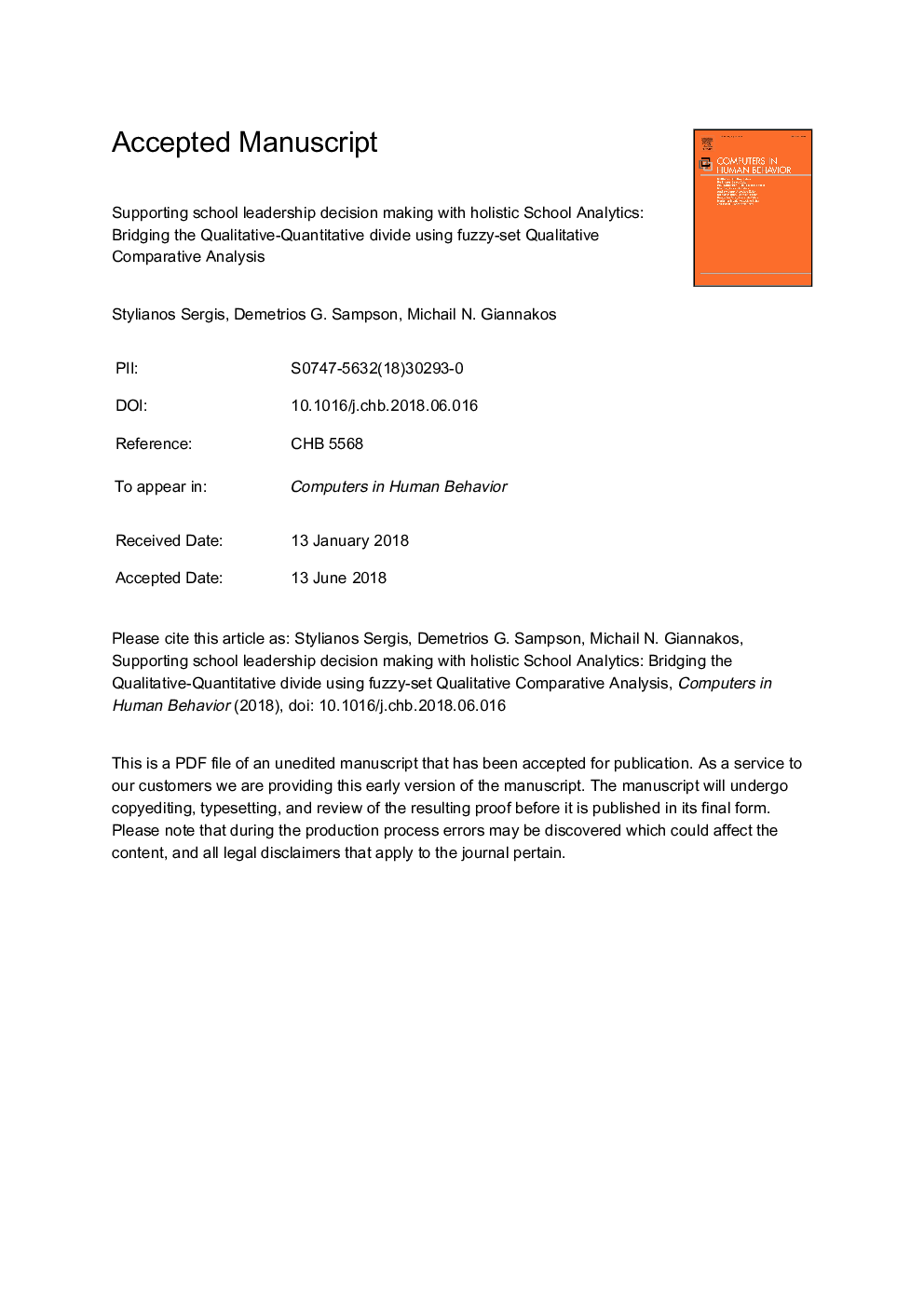| Article ID | Journal | Published Year | Pages | File Type |
|---|---|---|---|---|
| 11512888 | Computers in Human Behavior | 2018 | 20 Pages |
Abstract
School leaders around the world are increasingly required to orchestrate their school's strategic planning in order to both meet external accountability requirements and create fostering learning environments for all students. To meet these objectives in the complex school ecosystem, leaders need to make decisions based on holistic collection and analysis of diverse educational data, coming from different school actors (such as students, teachers, infrastructure, curricula, legislations etc.). However, this task can be very cumbersome, especially since contemporary 'School Analytics' methods aiming to support decision making have mainly accommodated the aspect of collecting and visualizing data or utilized variance-based analyses, but have yet to explicitly address the aspect of deriving insights to inform strategic school planning. In this context, the contribution of this work is to present and evaluate a novel School Analytics approach that employs fuzzy-set qualitative comparative analysis (fsQCA) as the means to bridge the qualitative-quantitative divide in learning technology research methods and provide leaders with actionable insights on how to create school conditions for fostering students' outcomes, focusing on digital skills as a case study. By employing fsQCA on data from almost 3000 schools across Europe, the paper outlines eight distinct configurations of school factors, which describe how school leaders can potentially generate nurturing environments for enhancing students' digital skills. Finally, the quantitative results from a layered evaluation protocol argue for the promising potential of the fsQCA method as a tool to unravel the complex knot of processing school-wide educational data and generating insights to inform school leaders' decision making.
Related Topics
Physical Sciences and Engineering
Computer Science
Computer Science Applications
Authors
Stylianos Sergis, Demetrios G. Sampson, Michail N. Giannakos,
